Kelly Jensen's Blog, page 108
July 22, 2014
The Shadow Hero by Gene Luen Yang & Sonny Liew
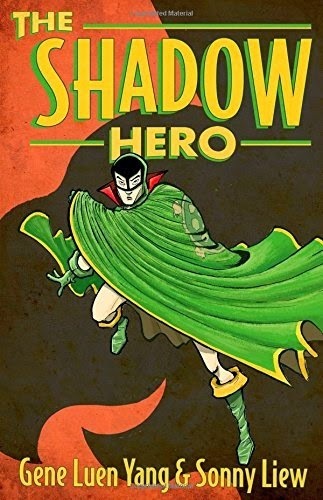 I don't think Gene Yang has written a book yet that I haven't liked. His latest,
The Shadow Hero
, is an ambitious project, one that should instantly establish itself as part of the comics canon. He's taken an obscure character from the 1940s, possibly the first-ever Asian American superhero, and written an origin story for him that is fresh, timely, and fun.
I don't think Gene Yang has written a book yet that I haven't liked. His latest,
The Shadow Hero
, is an ambitious project, one that should instantly establish itself as part of the comics canon. He's taken an obscure character from the 1940s, possibly the first-ever Asian American superhero, and written an origin story for him that is fresh, timely, and fun.The Green Turtle was a short-lived hero from the Golden Age of comics. His face was almost always obscured, which some argue was done in order to allow the creator to make him an Asian-American hero as opposed to the white American that the publisher wanted. Yang and Liew have pulled this character from the footnotes of comics history and made him into an interesting and fully-formed superhero, the son of Chinese immigrants experiencing his teenage years through the lenses of his heritage as well as his unconventional ability.
Like much of Yang's other work, this is a story about growing up as a Chinese-American, but it also feels very much like a classic superhero story. Hank's parents were both born in China and came to America separately, for different reasons. Hank's mother felt like she settled for Hank's father, and she doesn't have the life she always dreamed of. This contributes to her desire to make something of her son, and she sets about trying to figure out a way for Hank to get real superpowers, much like the Anchor of Justice, a real superhero in this book's world (set just before the second world war). Hank isn't into it at first, but as you might expect, something eventually does happen and Hank becomes the Green Turtle.
Yang takes a lot of tropes (a nicer word for cliches in this case) from 40s comics and incorporates them into Hank's story. The book includes things like a detective named Lawful, gangsters as villains, freak accidents that imbue people with powers, and so on. Rather than feeling lazy or derivative, these choices feel deliberate, especially when accompanied by a hero protagonist who is pointedly Chinese-American as his inspiration was never allowed to be. The book feels like a homage to Chu Hing (the creator of the Green Turtle from the 40s) as well as a corrective - in a small way - to decades of comics history that never allowed stories like these featuring characters like Hank and his family to be told.
The book also functions really well as a straight-up superhero comic, no context needed to enjoy it. The story is interesting, the art is crisp and expressive, the characters are nicely rounded. The plot also has some unique mythology behind it, tying it back to Hank's heritage, lending Hank and his nemesis extra depth and adding some much-needed layers to the story.
I love superhero origin stories featuring teenagers; they're such perfect metaphors for the teenage experience. I see this as a great readalike for fans of the new Ms. Marvel, someone who is also struggling to grow up as part of a cultural minority in America while simultaneously grappling with new abilities that are both amazing and terrifying.
The author's note at the end gives context on the original comic and reproduces an issue in full. It's a must-read, enhancing the significance of Yang and Liew's own work. Highly recommended.
Finished copy provided by the publisher. The Shadow Hero is available now (so no excuses).







 Related StoriesIllusive by Emily Lloyd-JonesConversion by Katherine HoweDirty Wings by Sarah McCarry
Related StoriesIllusive by Emily Lloyd-JonesConversion by Katherine HoweDirty Wings by Sarah McCarry
Published on July 22, 2014 22:00
July 21, 2014
Buzz-worthy Covers: Bees All Around Us
Now that we're deep into the throes of summer in these parts, I can't help but see the bees we've got around our house. They're especially fond of a bush we have near our front door -- and near my outdoor reading area -- so it's a precarious dance around them each time we're in or out of our house.
Bees on book covers are not necessarily a trend, per se, but after the recent reveal of the cover for Laura Ruby's 2015 book Bone Gap, I started noticing more and more bee-themed covers on the backlist in both YA and adult books. It's a unique image, and it's one that sticks with me because it's not one I see a whole lot. I think part of it might also be that these covers tend to use colors not always seen on books -- yellows and browns that are bright and stand out a bit on the shelves. How great would putting these all on a display look?
Rather than ignore this fun cover image, I thought I'd round-up a pile of them and share with our hive (that was really bad and I'm not sorry).
All descriptions are from WorldCat, unless otherwise noted. These span from YA titles to adult titles, fiction and non-fiction (though I've avoided obvious reference texts about bees because that's too easy). I'd love if you can think of other covers that feature bees or elements of the bee world.
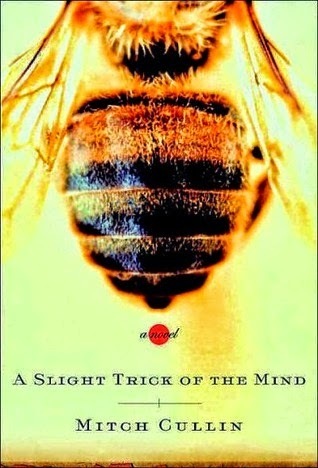
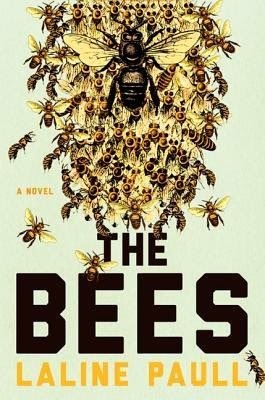
A Slight Trick of the Mind by Mitch Cullin: 1947 finds Holmes living in a Sussex farmhouse at 93 with a housekeeper and her son, Roger, who discovers evidence of a case never before reported, a case involving a Mrs. Keller, the long-ago object of Holmes's affection.
The Bees by Laline Paull: A member of the lowest caste in her orchard hive, Flora 717, due to her courage and strength, finds her way into the Queen's inner sanctum where she discovers secrets about the hive that cause her to challenge authority and perform unthinkable acts. (I am so, so interested in reading this one because it's from the POV of a bee and I can't wrap my mind around that).


A Sting in the Tale: My Adventures with Bumblebees by Dave Goulson: One of the U.K.'s most respected conservationists and the founder of the Bumblebee Conservation Trust, the author has always been obsessed with wildlife, from his childhood menagerie of exotic pets and dabbling in experimental taxidermy to his groundbreaking research into the mysterious ways of the bumblebee and his mission to protect our rarest bees. Once commonly found in the marshes of Kent, the short-hairedbumblebee now only exists in the wilds of New Zealand, the descendants of a few queen bees shipped over in the nineteenth century. Dave Goulson's passionate drive to reintroduce it to its native land is one of the highlights of a book that includes exclusive research into these curious creatures, history's relationship with the bumblebee and advice on how to protect it for all time. Here the author combines tales of a child's growing passion for nature with a deep insight into the crucial importance of the bumblebee. He details the minutiae of life in their nests, sharing fascinating research into the effects intensive farming has had on our bee populations and on the potential dangers if we are to continue down this path.
The alternate cover for Goulson's book is bee-rific, too.
The Secret Life of Bees by Sue Monk Kidd: Set in South Carolina in 1964, [this book] tells the story of Lily Owens, whose life has been shaped around the blurred memory of the afternoon her mother was killed. When Lily's fierce-hearted "stand-in mother," Rosaleen, insults three of the town's fiercest racists, Lily decides they should both escape to Tiburon, South Carolina--a town that holds the secret to her mother's past. There they are taken in by an eccentric trio of black beekeeping sisters who introduce Lily to a mesmerizing world of bees, honey, and the Black Madonna who presides over their household. This is a remarkable story about divine female power and the transforming power of love--a story that women will share and pass on to their daughters for years to come.
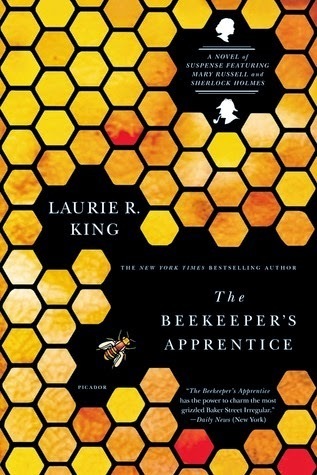
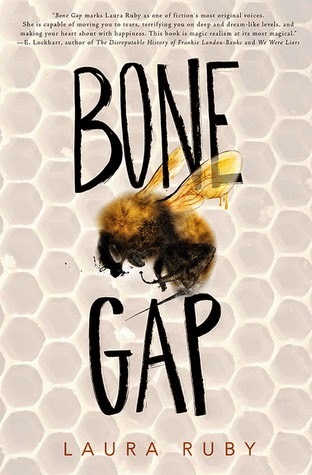
The Beekeeper's Apprentice by Laurie R. King: In 1914, a young woman named Mary Russell meets a retired beekeeper on the Sussex Downs. His name is Sherlock Holmes. And although he may have all the Victorian "flaws" listed above, the Great Detective is no fool, and can spot a fellow intellect even in a fifteen-year-old woman. So, at first informally, then consciously, he takes Mary as his apprentice. They work on a few small local cases, then, on a larger and more urgent investigation, which ends successfully. All the time, Mary is developing as a detective in her own right, with the benefit of the knowledge and experience of her mentor and, increasingly, friend. And then the sky opens on them, and they find themselves the targets of a slippery, murderous, and apparently all-knowing adversary. Together they devise a plan to trap their enemy--a plan that may save their lives but may also kill off their relationship.
Bone Gap by Laura Ruby (due out March 2015): Everyone knows Bone Gap is full of gaps—gaps to trip you up, gaps to slide through so you can disappear forever. So when young, beautiful Roza went missing, the people of Bone Gap weren’t surprised. After all, it wasn’t the first time that someone had slipped away and left Finn and Sean O’Sullivan on their own. Just a few years before, their mother had high-tailed it to Oregon for a brand new guy, a brand new life. That’s just how things go, the people said. Who are you going to blame? Finn knows that’s not what happened with Roza. He knows she was kidnapped, ripped from the cornfields by a dangerous man whose face he cannot remember. But the searches turned up nothing, and no one believes him anymore. Not even Sean, who has more reason to find Roza than anyone, and every reason to blame Finn for letting her go. (Description via Goodreads).
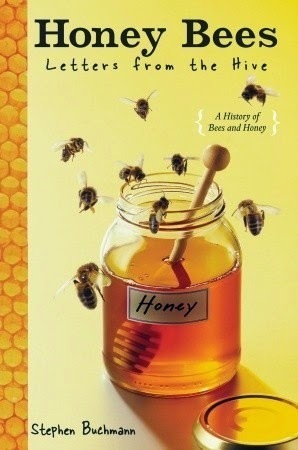
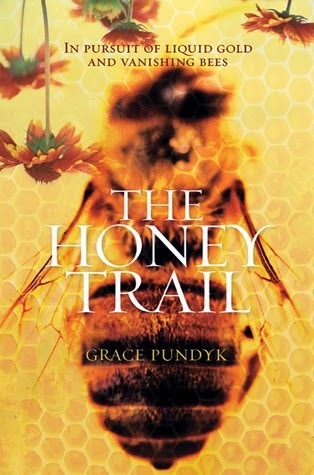
Honey Bees: Letters from the Hive by Stephen Buchmann: A fascinating look at the story of bees, the many extraordinary and often unexpected ways they've enriched our lives from prehistoric times to today, and their importance in keeping the food chain thriving.
The Honey Trail by Grace Pundyk: The Honey Trail is a global travel narrative that looks at different aspects of how honey and bees are being affected by globalization, terrorism, deforestation, the global food trade, and climate change.
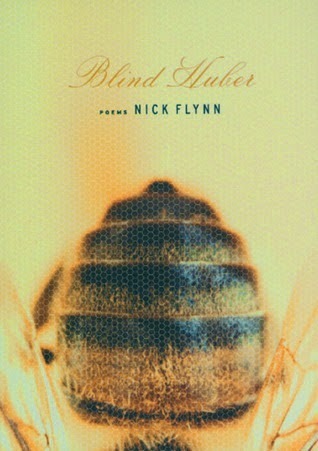
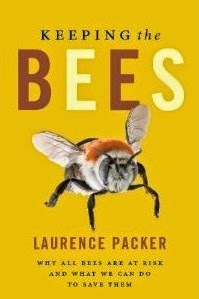
Blind Huber: Poems by Nick Flynn: Meditations on the body, love, devotion, and about nature and the limits of knowledge.
Keeping The Bees by Laurence Packer: A world without bees would be much less colourful, with fewer plants and flowers. But that's not all -- food would be in much shorter supply, and available in much less variety. While the media focuses on colony-collapse disorder and the threats to honey bees specifically, the real danger is much greater: all bees are at risk. And because of the integral role these insects play in the ecology of our planet, we may be at risk as well. The life of Laurence Packer, a melittologist at Toronto's York University, revolves around bees, whether he's searching for them under leaves in a South American jungle or identifying new species in the desert heat of Arizona. Packer often finds himself in exotic and even dangerous locales, risking snake bites, sunstroke, and even the ire of other scientists. Everywhere he travels, he discovers the same unsettling trend: bees are disappearing. And since bees are responsible for up to one-third of our food supply, the consequences are frightening. (Description via Goodreads).
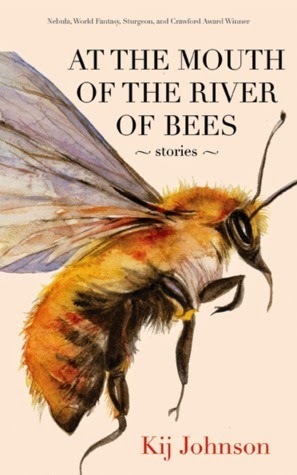
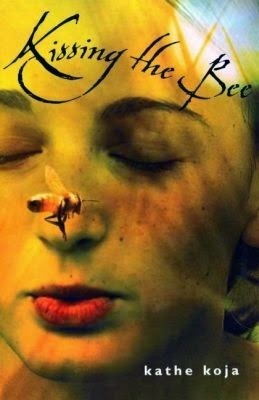
At the Mouth of the River of Bees by Kij Johnson: These stories feature cats, bees, wolves, dogs-- and even that most capricious of animals, humans.
Kissing the Bee by Kathe Koja: While working on a bee project for her advanced biology class, quiet high school senior Dana reflects on her relationship with gorgeous best friend Avra and Avra's boyfriend Emil, whom Dana secretly loves.

Of course, I have to end with some Goosebumps and Why I'm Afraid of Bees.







 Related StoriesHardcover to Paperback Redesigns: 7 To ConsiderHardcover to Paperback: 5 YA Changes to ConsiderCover Double, Triple, and (formerly) Quadruple: Risk Taking and Cover Design
Related StoriesHardcover to Paperback Redesigns: 7 To ConsiderHardcover to Paperback: 5 YA Changes to ConsiderCover Double, Triple, and (formerly) Quadruple: Risk Taking and Cover Design
Bees on book covers are not necessarily a trend, per se, but after the recent reveal of the cover for Laura Ruby's 2015 book Bone Gap, I started noticing more and more bee-themed covers on the backlist in both YA and adult books. It's a unique image, and it's one that sticks with me because it's not one I see a whole lot. I think part of it might also be that these covers tend to use colors not always seen on books -- yellows and browns that are bright and stand out a bit on the shelves. How great would putting these all on a display look?
Rather than ignore this fun cover image, I thought I'd round-up a pile of them and share with our hive (that was really bad and I'm not sorry).
All descriptions are from WorldCat, unless otherwise noted. These span from YA titles to adult titles, fiction and non-fiction (though I've avoided obvious reference texts about bees because that's too easy). I'd love if you can think of other covers that feature bees or elements of the bee world.


A Slight Trick of the Mind by Mitch Cullin: 1947 finds Holmes living in a Sussex farmhouse at 93 with a housekeeper and her son, Roger, who discovers evidence of a case never before reported, a case involving a Mrs. Keller, the long-ago object of Holmes's affection.
The Bees by Laline Paull: A member of the lowest caste in her orchard hive, Flora 717, due to her courage and strength, finds her way into the Queen's inner sanctum where she discovers secrets about the hive that cause her to challenge authority and perform unthinkable acts. (I am so, so interested in reading this one because it's from the POV of a bee and I can't wrap my mind around that).


A Sting in the Tale: My Adventures with Bumblebees by Dave Goulson: One of the U.K.'s most respected conservationists and the founder of the Bumblebee Conservation Trust, the author has always been obsessed with wildlife, from his childhood menagerie of exotic pets and dabbling in experimental taxidermy to his groundbreaking research into the mysterious ways of the bumblebee and his mission to protect our rarest bees. Once commonly found in the marshes of Kent, the short-hairedbumblebee now only exists in the wilds of New Zealand, the descendants of a few queen bees shipped over in the nineteenth century. Dave Goulson's passionate drive to reintroduce it to its native land is one of the highlights of a book that includes exclusive research into these curious creatures, history's relationship with the bumblebee and advice on how to protect it for all time. Here the author combines tales of a child's growing passion for nature with a deep insight into the crucial importance of the bumblebee. He details the minutiae of life in their nests, sharing fascinating research into the effects intensive farming has had on our bee populations and on the potential dangers if we are to continue down this path.
The alternate cover for Goulson's book is bee-rific, too.
The Secret Life of Bees by Sue Monk Kidd: Set in South Carolina in 1964, [this book] tells the story of Lily Owens, whose life has been shaped around the blurred memory of the afternoon her mother was killed. When Lily's fierce-hearted "stand-in mother," Rosaleen, insults three of the town's fiercest racists, Lily decides they should both escape to Tiburon, South Carolina--a town that holds the secret to her mother's past. There they are taken in by an eccentric trio of black beekeeping sisters who introduce Lily to a mesmerizing world of bees, honey, and the Black Madonna who presides over their household. This is a remarkable story about divine female power and the transforming power of love--a story that women will share and pass on to their daughters for years to come.


The Beekeeper's Apprentice by Laurie R. King: In 1914, a young woman named Mary Russell meets a retired beekeeper on the Sussex Downs. His name is Sherlock Holmes. And although he may have all the Victorian "flaws" listed above, the Great Detective is no fool, and can spot a fellow intellect even in a fifteen-year-old woman. So, at first informally, then consciously, he takes Mary as his apprentice. They work on a few small local cases, then, on a larger and more urgent investigation, which ends successfully. All the time, Mary is developing as a detective in her own right, with the benefit of the knowledge and experience of her mentor and, increasingly, friend. And then the sky opens on them, and they find themselves the targets of a slippery, murderous, and apparently all-knowing adversary. Together they devise a plan to trap their enemy--a plan that may save their lives but may also kill off their relationship.
Bone Gap by Laura Ruby (due out March 2015): Everyone knows Bone Gap is full of gaps—gaps to trip you up, gaps to slide through so you can disappear forever. So when young, beautiful Roza went missing, the people of Bone Gap weren’t surprised. After all, it wasn’t the first time that someone had slipped away and left Finn and Sean O’Sullivan on their own. Just a few years before, their mother had high-tailed it to Oregon for a brand new guy, a brand new life. That’s just how things go, the people said. Who are you going to blame? Finn knows that’s not what happened with Roza. He knows she was kidnapped, ripped from the cornfields by a dangerous man whose face he cannot remember. But the searches turned up nothing, and no one believes him anymore. Not even Sean, who has more reason to find Roza than anyone, and every reason to blame Finn for letting her go. (Description via Goodreads).


Honey Bees: Letters from the Hive by Stephen Buchmann: A fascinating look at the story of bees, the many extraordinary and often unexpected ways they've enriched our lives from prehistoric times to today, and their importance in keeping the food chain thriving.
The Honey Trail by Grace Pundyk: The Honey Trail is a global travel narrative that looks at different aspects of how honey and bees are being affected by globalization, terrorism, deforestation, the global food trade, and climate change.


Blind Huber: Poems by Nick Flynn: Meditations on the body, love, devotion, and about nature and the limits of knowledge.
Keeping The Bees by Laurence Packer: A world without bees would be much less colourful, with fewer plants and flowers. But that's not all -- food would be in much shorter supply, and available in much less variety. While the media focuses on colony-collapse disorder and the threats to honey bees specifically, the real danger is much greater: all bees are at risk. And because of the integral role these insects play in the ecology of our planet, we may be at risk as well. The life of Laurence Packer, a melittologist at Toronto's York University, revolves around bees, whether he's searching for them under leaves in a South American jungle or identifying new species in the desert heat of Arizona. Packer often finds himself in exotic and even dangerous locales, risking snake bites, sunstroke, and even the ire of other scientists. Everywhere he travels, he discovers the same unsettling trend: bees are disappearing. And since bees are responsible for up to one-third of our food supply, the consequences are frightening. (Description via Goodreads).


At the Mouth of the River of Bees by Kij Johnson: These stories feature cats, bees, wolves, dogs-- and even that most capricious of animals, humans.
Kissing the Bee by Kathe Koja: While working on a bee project for her advanced biology class, quiet high school senior Dana reflects on her relationship with gorgeous best friend Avra and Avra's boyfriend Emil, whom Dana secretly loves.

Of course, I have to end with some Goosebumps and Why I'm Afraid of Bees.







 Related StoriesHardcover to Paperback Redesigns: 7 To ConsiderHardcover to Paperback: 5 YA Changes to ConsiderCover Double, Triple, and (formerly) Quadruple: Risk Taking and Cover Design
Related StoriesHardcover to Paperback Redesigns: 7 To ConsiderHardcover to Paperback: 5 YA Changes to ConsiderCover Double, Triple, and (formerly) Quadruple: Risk Taking and Cover Design
Published on July 21, 2014 22:00
July 20, 2014
Defining "Debut" in Young Adult Novels

A couple of years ago, Rachel Hartman was a Morris Award finalist, and she went on to win the award in early 2013. The Morris award, for those unfamiliar, is given annually by the Young Adult Library Services Association (YALSA), which is a division of the American Library Association (ALA). The award, which started in 2009, honors "a debut book published by a first-time author writing for teens and celebrating impressive new voices in young adult literature" (from the award's webpage).
When Hartman's novel was named on the short list, I wrote about how it raised some questions about what the word "debut" really means. Hartman had self-published a book a couple years prior, meaning that in the purest sense of the word, Seraphina wasn't really a debut novel. For the purposes of the Morris, that self-published book didn't infringe on the eligibility of Hartman's novel being recognized. Since self-publishing is still relatively new -- relative the key word there -- these sorts of technicalities were still being considered when it came to award eligibility, and now it's made much clearer in the official policies for the Morris. A debut novel is the first book by an author that's been available in print or made available through a US publishing house.
Over the last few years, it's impossible not to take note of how the word "debut" has been applied liberally to books in the YA world. It's become a marketing tool, as a way to sell a book to an audience. In many ways, this makes sense: it can be hard for a new author to gain any sort of traction in a market where there are huge, well-known names that are exceptionally popular, that dominate bestseller lists, that are seen in airport bookstores and on big displays in bookshops, and which show up in co-ops in online retail spaces. To be a new author without a huge, guaranteed audience is to look at the bottom of a huge mountain without much climbing gear and with little or no experience.
But it's also an opportunity.
That label of debut has become currency in a way. In many ways, it's a sort of salve to those readers who are tired of the same old same old in YA. This debut novel is a new opportunity, a change from everything that's already out there. Rather than debut being a thing that maybe you shouldn't know about a book, it's instead become a means of promoting the book. It's not a pejorative term; it's the exact opposite.
I'm a sucker for debut novels personally. I love seeing someone's first story on the page. I love thinking about what and how that story did and did not succeed, and if it's been a good reading experience, I look forward to seeing what their sophomore and subsequent efforts will look like. There are authors who I feel I've been reading their entire careers, and there's something exceptionally fun about watching them go from debuts to seasoned authors. To see how their styles have grown, how their ability to weave a story has become more masterful, to see themes and trends that emerge, whether they're intentional or not (some authors write certain things in all their books even they're unaware of it -- I've noticed, for example, an author who always wove hand or finger imagery into her work and another who always seemed to have something with mothers in hers, even if the mother wasn't the thrust of the story). The label "debut" to me is exciting -- that's part of why I keep track of them each month. It's a way for me to keep track of these new voices and make note of what I should be picking up.
"Debut" has become a full-force marketing tool, and the ways in which the word has become stretched makes it near meaningless for me anymore when I see it in a catalog description or an author bio. What should mean first novel -- the first book that author has ever written -- has instead morphed into something more meaningless. "Debut" has been frequently put in front of the words "young adult novel" in recent years, which means that no, the book isn't actually the author's first, but it is his or her first novel written for young adults (and whatever that means, too, since "for young adults" is essentially meaningless as well -- young adult may be a category of books, but did that author whose book is being marketed as young adult really write for that audience or did that decision get made on another level?).
In some ways, the word feels apologetic when applied like that. We've all read the villainization and the apologia for young adult fiction too many times for me to reiterate here.
In other ways, it feels like it's a too-easy way to garner some buzz for the book. The author's written other books, but this one, it's different because it's a YA book. They've done exceptionally well in other areas, so this debut into a new category of fiction is exciting since it's their first.
The story -- what the book is about -- can get lost in those conversations. The story is, of course, what most readers care about. Sure, they'll care about Big Name authors making a YA foray, but that's double edged: sometimes that YA foray can be met with scoffs by readers who are devoted to a particular author.
Sometimes, an author changes his or her name when writing that debut young adult novel. Perhaps they've published prolifically within a genre and now that they have a YA story in mind, they want to build a new brand around it. That's the case in one "debut young adult novel" that will be out later this year.
Or perhaps they did write a young adult novel but they published it under a pseudonym and now they're publishing their "debut young adult novel" under their real name. That's the case in one or two "debut young adult novels" I've seen pop up in recent years, too. Do those who have written young adult novels initially who go on to publish an adult novel have their books sold as "debut adult novels?" I'm not sure I've seen that. Then again, I've seen that sort of move happen less frequently than I have seen adult novelists becoming young adult novelists (by choice or by luck).
In one case this year, I've seen a novel marketed as a "young adult debut thriller," published with the author's initials as the first name, rather than her full name. This not only redefined what debut meant by including the word "thriller," but it also served the purpose of looking like an actual debut novel because the author's name changed. So while she may be trying to build a different brand around a new writing style -- one the fans she's already grown may not necessarily be into (think Nora Roberts / J. D. Robb) -- the marketing of the book pulls a sleight of hand, making it look like something that it's really not.
I've been tricked before, and that leaves a sour taste in my mouth. "Debut" to me means one thing, and it means only one thing. But do I maybe care too much about the purity of the word? Then again, I wonder why it's necessary to use unless there's a meaning behind it.
For me, the word "debut" doesn't skew the reading experience unless it's been qualified. Then I judge it a little tougher. I want to know why it was important enough for that word to be a selling point or a feature, over what other things could have been played up instead. There's a story to the story, rather than a story of the story.
So why all of the insistence on the word "debut" if it's being used with a load of qualifiers? Does the word really move copies of the book? Does the word "debut" offer a certain leeway with readers? What about with reviewers?
What makes "debut" a word with such sex appeal and do readers -- those without any interest or knowledge of the bigger book world -- even care?







 Related StoriesJuly Debut YA NovelsJune Debut YA NovelsMay Debut YA Novels
Related StoriesJuly Debut YA NovelsJune Debut YA NovelsMay Debut YA Novels
Published on July 20, 2014 22:00
This Week in Reading: Volume III
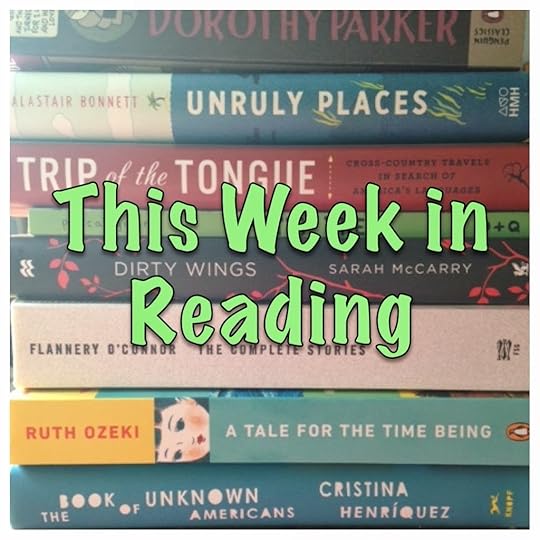
When I was doing "Links of Note," I would get myself oddly stressed out about not having things done and ready immediately with the post. Which is why when it kind of died down, it disappeared more than just became sporadic. Testing out this new format, though, has been kind of fun: I don't find myself worried about having it ready to go immediately on Sunday morning. It's more leisurely, and there's something fun about sharing a wider range of reading from the week.
I did a great job timing a big book order with a couple other things I'd preordered, so this week I had a ton of books come through my door. Here's what I bought (with links to Goodreads for further descriptions):
The Portable Dorothy Parker edited by Marion Meade -- I'm making my way through this one right now, as I've never read Parker before.
Unruly Places: Lost Spaces, Secret Cities, and Other Inscrutable Geographies by Alastair Bonnett
Trip of the Tongue: Cross-Country Travels in Search of America's Language by Elizabeth Little
Petty Theft by Pascal Girard -- I read this one this week since it's a short graphic novel.
Dirty Wings by Sarah McCarry -- I read this months ago but needed my own copy to sit beside the first book.
The Complete Stories of Flannery O'Connor by Flannery O'Connor
A Tale for the Time Being by Ruth Ozeki
The Book of Unknown Americans by Cristina Henriquez
My husband's started in on the Bonnett and Little titles, since he's a non-fiction reader, and he's said positive things about both so far. I'm hoping this week to make a dent in a couple more of these.
Here's what I read this week:
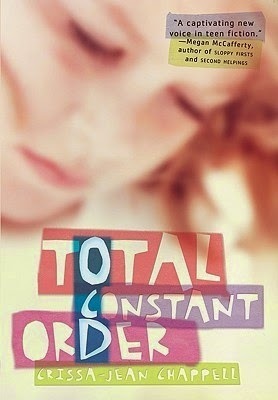
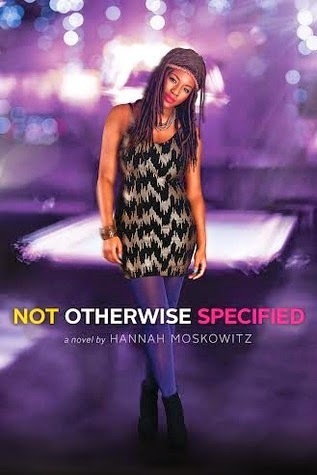
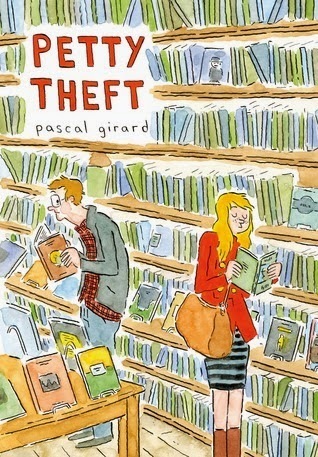
Total Constant Order by Crissa-Jean Chappel: I'm glad I was able to track this one down. A solid read about a girl dealing with obsessive compulsive disorder and how she navigates her world with it. I'll talk more about this one, I think, but it'd be a great read alike to Heidi Ayarbe's Compulsion.
Not Otherwise Specified by Hannah Moskowitz (March 3, 2015): I know this isn't out for a long time but it's so good. Put it on your to-read list. It's a story about a black lesbian dancer who wants nothing more than to get out of Nebraska and on with her life. There are some really great threads here about relationships, about friendship, about eating disorders and how they do/don't manifest, and how people are far more than meets the eye. Etta, the main character, has a fantastic voice and her perspective of the world is great.
Petty Theft by Pascal Girard: An amusing graphic novel about a man who is getting over a breakup and is unable to pursue any of his passions because of it. He stumbles across a woman who steals from his local bookstore, and he's determined to catch her and turn her in. Then he happens to sort of fall for her and things get even more complicated. I think I'll talk more about this one soon -- I don't think I've read a graphic novel in translation before, and I'm a bit fixated on that now.
Reading from around the web this week:
This giant, thoughtful list of LGBTQ books from Book Riot is such an incredible resource. I loved this piece that Sarah McCarry wrote about her inspirations behind writing the sorts of books she does. The anatomy of a cover design -- this one for Leslie Jamison's The Empathy Exams -- is really neat.
Jennie Rothschild shared her methods of organization via the bullet journal. How about an interview at the Library of Congress with Amanda Brennan, the meme librarian who now works for Tumblr? It's really interesting and offers a lot of food for thought about what a librarian is, what a librarian looks like, and where a librarian's skills can be put to work. A lot more details about Kid Lit Con went up this week. Here's a piece about the con over at the Nerdy Book Club, written by Jen Robinson. They're still accepting presentation proposals and registration is now open.
If you missed it earlier this week, I am giving away another copy of It Happens, too.







 Related StoriesThis Week in Reading: Volume IIThis Week in Reading: Volume I
Related StoriesThis Week in Reading: Volume IIThis Week in Reading: Volume I
Published on July 20, 2014 06:03
July 19, 2014
A Short Update on a Policy Change
A couple of weeks ago, I wrote about why I was choosing to step down from my elected position on the Printz committee next year. YALSA changed a policy with regards to how members on committees may use social media, and it said the following:
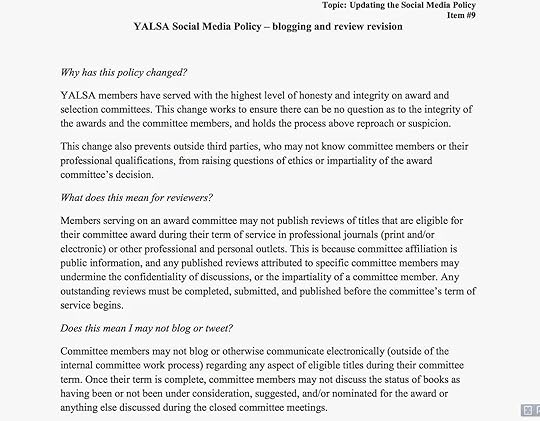
This is all noted in my post, along with the original policy that was up for a consent vote at annual in June.
The element of the policy about not communicating electronically about any eligible titles was the cause for concern. And I wasn't the only person who saw this and had questions. Those questions were asked of YALSA, and they weren't answered, suggesting that indeed, the policy was clear enough.
When I wrote my letter to the executive director and to the incoming president of YALSA, I laid out that this particular element within the policy, about no communication about any eligible titles electronically, was my sticking point. The response I got to my concern was short, brief, and said thanks for considering the opportunity and whether it was a good fit for me, followed by assurance my vacancy would be filled.
No explanation. No clarification. No pointing out my interpretation was incorrect.
I took that to mean I had read this correctly, both because my question wasn't answered about interpretation and also because the response I got following my concern being why I thought it was best to step down didn't address a misinterpretation.
But now, the FAQ has changed.
Following annual, a new FAQ about the social media policy came out, and it's much friendlier. The sticking point about whether committee members were gag ordered was clarified to say blogging and tweeting in non-review form of eligible titles would be fine. You can read it in full here.
It's good YALSA followed through and clarified this policy. It makes it clear, consistent, and allows professionals to be just that: professional. They're asked to use their best judgment in talking about eligible titles, rather than being told they can't speak about them at all. This is a great thing, and I'm glad that members now know that writing book lists or otherwise sharing information about titles which may be eligible for their committee's award or selection list is okay.
Unfortunately, it doesn't change a thing for me.
It's more disappointing than I can express that, despite multiple attempts, my concerns about this could not be addressed. That even in private communication, those in charge at YALSA chose not to discuss with me the issues I had and chose not to tell me that the FAQ could change or that my interpretation was incorrect. If anything, it feels personal, as this change came after asking and after quitting.
While I will continue to support YALSA members and the incredible work they put into the organization through volunteering, through educating, and through sharing, I will not be further involving myself with the organization. When my membership renewal is up next month, I will be spending that money in other ways.
We have to make choices about our time, our energy, and our money. At this point, it's clear to me that YALSA doesn't want me part of their organization, so I'm going to choose to go elsewhere.








This is all noted in my post, along with the original policy that was up for a consent vote at annual in June.
The element of the policy about not communicating electronically about any eligible titles was the cause for concern. And I wasn't the only person who saw this and had questions. Those questions were asked of YALSA, and they weren't answered, suggesting that indeed, the policy was clear enough.
When I wrote my letter to the executive director and to the incoming president of YALSA, I laid out that this particular element within the policy, about no communication about any eligible titles electronically, was my sticking point. The response I got to my concern was short, brief, and said thanks for considering the opportunity and whether it was a good fit for me, followed by assurance my vacancy would be filled.
No explanation. No clarification. No pointing out my interpretation was incorrect.
I took that to mean I had read this correctly, both because my question wasn't answered about interpretation and also because the response I got following my concern being why I thought it was best to step down didn't address a misinterpretation.
But now, the FAQ has changed.
Following annual, a new FAQ about the social media policy came out, and it's much friendlier. The sticking point about whether committee members were gag ordered was clarified to say blogging and tweeting in non-review form of eligible titles would be fine. You can read it in full here.
It's good YALSA followed through and clarified this policy. It makes it clear, consistent, and allows professionals to be just that: professional. They're asked to use their best judgment in talking about eligible titles, rather than being told they can't speak about them at all. This is a great thing, and I'm glad that members now know that writing book lists or otherwise sharing information about titles which may be eligible for their committee's award or selection list is okay.
Unfortunately, it doesn't change a thing for me.
It's more disappointing than I can express that, despite multiple attempts, my concerns about this could not be addressed. That even in private communication, those in charge at YALSA chose not to discuss with me the issues I had and chose not to tell me that the FAQ could change or that my interpretation was incorrect. If anything, it feels personal, as this change came after asking and after quitting.
While I will continue to support YALSA members and the incredible work they put into the organization through volunteering, through educating, and through sharing, I will not be further involving myself with the organization. When my membership renewal is up next month, I will be spending that money in other ways.
We have to make choices about our time, our energy, and our money. At this point, it's clear to me that YALSA doesn't want me part of their organization, so I'm going to choose to go elsewhere.








Published on July 19, 2014 07:43
July 17, 2014
Recently at Book Riot
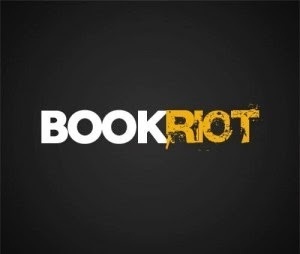
Since I've changed up the biweekly "Links of Note" posts into something a little different, I haven't been linking to some of the stuff I've been writing at Book Riot back over here at Stacked. Since I've been writing a little more over there -- and soon will be adding a new regular feature I'm really excited about (I'll get to that in a second) -- I thought I'd do a roundup of what I've been talking about at the Riot.
66 YA books publishing between July and September to get on your radar -- I put together a YA preview at the beginning of the year and wanted to tackle the second half of the year. It got so long, though, I have to split it into two. The Library is Not a "Netflix" for Books -- I think the title says it all. It's a false comparison that bothers me because it reduces all that a library is and does. In His Own Words: Walter Dean Myers -- I pulled together some of Myers's talks, articles, and passionate pleas for books, diversity, and reading with kids in a tribute. Included is Myers's talk at SLJ's Day of Dialog from 2012, when he was a keynote speaker. My Grandpa, The Non-Reader -- I don't like to blog a lot of personal stuff, but I was doing some shelf rearranging in my house a few weeks ago and stumbled across my unopened copy of Marley and Me and decided it was time to talk about why that book is important to me. LEGO Stories: Your New Favorite Tumblr -- Do you know about the LEGO Stories tumblr? It's a blast. I pulled out some of my favorite LEGO stories they've put together. The Perfectly Shaped Treat: Literary Cookie Cutters -- I went down an Etsy hole one afternoon and pulled out some bookish cookie cutters. I'm pretty positive I'm going to follow this one up with some bookish dishes at some point. I think I could build an entire literary kitchen.
Book Fetish
I've been doing the Book Fetish feature for a few months, sharing responsibility with another Rioter. But now that she's settled back into her routine, I'm giving it back over to her fully. No worries though: I still plan on writing about neat bookish things, and I've been asked to create my own weekly feature to take the place of doing this one. I'll be putting together a weekly "Three on a Theme" series, featuring three YA books or YA book-related things each week that center around a single theme. It's my hope it'll delve into lesser-known YA, into backlist, and into fun YA stuff that isn't what you're already seeing everywhere. This will be in addition to the "Beyond the Bestsellers" series, which I'm still putting together semi-regularly. The series will kick off (fingers crossed) July 23 and run on Wednesdays.
Here are the last few Book Fetish posts I've done. Rather thank link you to the words, you can just click on the image and get to the post because it's more fun that way:
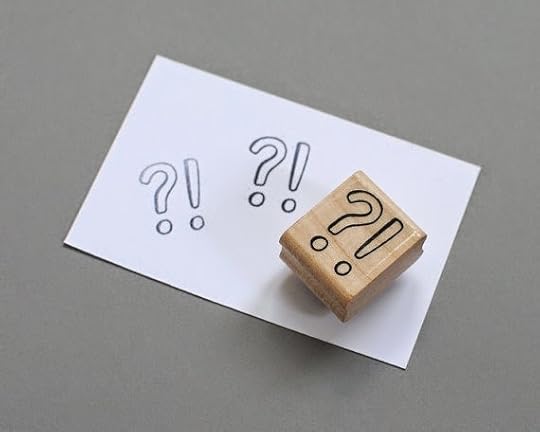


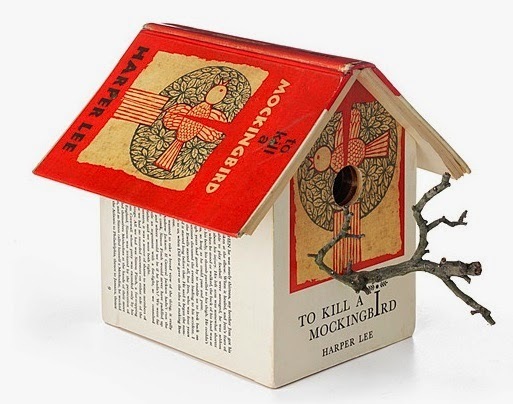
There are some other really exciting things on the horizon with what I'll be doing at Book Riot, and I can't wait to begin sharing that stuff as it comes down the pike.







 Related StoriesAn Interview with Laurie Halse Anderson at Book RiotTaking Contemporary YA to Book Riot, too"Beyond the Bestsellers" at Book Riot
Related StoriesAn Interview with Laurie Halse Anderson at Book RiotTaking Contemporary YA to Book Riot, too"Beyond the Bestsellers" at Book Riot
Published on July 17, 2014 22:00
July 16, 2014
Growing Up, Leaving Some Books Behind
I've been thinking a lot lately about treasured childhood reads that lose their luster for us as adults, for whatever reason. I've written about this a little before. More recently I've ruminated upon books that seemed harmless or innocuous enough when I read them as a kid but that I recognize are very problematic as an adult reader.
For me specifically, this is about the Narnia books, which I loved so much as a child but have a very contentious relationship with as an adult. I loved the PBS television adaptations that my family recorded to VHS tapes, and I loved the whole series of books, though I held most of my fondness for the first two or three. I still remember how smart and awed I felt when I discovered that the professor from The Lion, the Witch, and the Wardrobe was the same person who had all those adventures in The Magician's Nephew.
I'm not a religious person, so when someone told me that the Narnia books were a Christian allegory, I was shocked and didn't believe it at first. I quickly learned it was true, of course, and it didn't bother me a whole lot, really, once I got over my initial surprise. (I think I was around 12 years old, maybe younger.) The books functioned really well for me just as stories, and I didn't care so much that they were allegories for something I didn't believe in. Biblical stories are interesting too, after all, and it was a sort of fun treasure hunt for me to take my then-limited knowledge of the Bible and try to discover the parallels in the Narnia books. As a kid, I didn't feel like Lewis was preaching to me.
I still feel that way about most of the books. I decided to re-read them all a few years later, probably when I was in my late teens or early twenties. I remember being fine with them all, still quite enchanted by most of them, until I got to the very last book, The Last Battle. Here, the Pevensie children - excepting Susan - all die in a train accident (something I found very unjust as a child and didn't understand until I was older - I still have big problems with it, but for different reasons). Susan isn't on the train, which is lucky for her, until we consider the fact that Lewis writes that Susan doesn't get to go to Aslan's Narnia like her siblings did when they died. Looking at this as a Christian allegory, as it clearly is, this means Susan doesn't make it to heaven - not alongside her siblings in the train accident (which can be seen as a good thing), but also not when her death eventually comes in whatever form it takes (unless she undergoes a major personality change, at least).
And why doesn't Susan go to heaven? According to Peter: "My sister Susan is no longer a friend of Narnia." According to Jill: "She's interested in nothing nowadays except nylons and lipstick and invitations. She always was a jolly sight too keen on being grown up." And Polly says: "I wish she would grow up. She wasted all her school time wanting to be the age she is now, and she'll waste all the rest of her life trying to stay that age." (Pages 134-135 in my versions)
Many people, including JK Rowling, have extrapolated these lines to mean that Susan became interested in sex and therefore couldn't be religious, much less let into heaven. Others believe that they more broadly mean Susan grew up (of which sex is a part), which is interesting considering that Lewis chose to kill off the most faithful of his characters - Lucy - before she had a chance to grow up. In any case, the second line is quite clearly a sexist critique, attacking Susan for doing things that a lot of adult women do.
How much do the ideas contained within The Last Battle affect my overall feelings about the series? (And here I mean not only that Susan is excluded from paradise, but also that Lewis had to kill off the entire Pevensie family to prove his point in the first place.) Is it possible to love a story with such deeply problematic ideologies, ones that contradict our own ideologies as adults? More to the point, should a childhood favorite still be loved despite problems like these? Is reconciliation possible - or even desired?
This is something librarians have been grappling with for a long time. The Little House on the Prairie books continue to be widely loved by (mostly white) children, despite their fundamental problems with their depiction of Native Americans. Public libraries still carry these books, of course, and librarians know when to recommend them to the right readers. Part of being a public librarian is carrying out these tasks. Fellow librarian Angie Manfredi attempts to mitigate some of the issues with the books by also recommending The Birchbark House at the same time a patron asks for the Little House books - it's good reader's advisory and brings a wider audience to a book that deserves it.
But this is a professional task, and it doesn't answer the question of how to personally approach books we may have once loved. Can we love them while recognizing their problems at the same time; should we even try? The answer will vary from person to person, but I don't think I'd be wrong in saying that it's tough for a lot of adults to completely abandon a book that made them feel so excited and enchanted, that helped awaken them to the possibilities of the written word at such a young age. (And of course, not all problematic books are equivalent in their level of awfulness.)
As for myself, I still love the way the Narnia stories made me feel as a child, but I don't know if I'll ever read them again. It would be difficult to read about Susan's adventures as a queen knowing that Lewis chose to use her in the way he did, knowing what he tried to say about women who choose such things in his books for children. The movies are a little easier - a lot of spectacle, over more quickly, simpler not to dwell on any greater meaning there. But the books? They'll never be the same.
For a lovely epilogue to Susan's story that may serve as a balm to other readers like me, check out this tumblr post.






 Related StoriesCrossing the Line: Adult-Teen Relationships in YA Fiction and Beyond
Related StoriesCrossing the Line: Adult-Teen Relationships in YA Fiction and Beyond
For me specifically, this is about the Narnia books, which I loved so much as a child but have a very contentious relationship with as an adult. I loved the PBS television adaptations that my family recorded to VHS tapes, and I loved the whole series of books, though I held most of my fondness for the first two or three. I still remember how smart and awed I felt when I discovered that the professor from The Lion, the Witch, and the Wardrobe was the same person who had all those adventures in The Magician's Nephew.
I'm not a religious person, so when someone told me that the Narnia books were a Christian allegory, I was shocked and didn't believe it at first. I quickly learned it was true, of course, and it didn't bother me a whole lot, really, once I got over my initial surprise. (I think I was around 12 years old, maybe younger.) The books functioned really well for me just as stories, and I didn't care so much that they were allegories for something I didn't believe in. Biblical stories are interesting too, after all, and it was a sort of fun treasure hunt for me to take my then-limited knowledge of the Bible and try to discover the parallels in the Narnia books. As a kid, I didn't feel like Lewis was preaching to me.
I still feel that way about most of the books. I decided to re-read them all a few years later, probably when I was in my late teens or early twenties. I remember being fine with them all, still quite enchanted by most of them, until I got to the very last book, The Last Battle. Here, the Pevensie children - excepting Susan - all die in a train accident (something I found very unjust as a child and didn't understand until I was older - I still have big problems with it, but for different reasons). Susan isn't on the train, which is lucky for her, until we consider the fact that Lewis writes that Susan doesn't get to go to Aslan's Narnia like her siblings did when they died. Looking at this as a Christian allegory, as it clearly is, this means Susan doesn't make it to heaven - not alongside her siblings in the train accident (which can be seen as a good thing), but also not when her death eventually comes in whatever form it takes (unless she undergoes a major personality change, at least).
And why doesn't Susan go to heaven? According to Peter: "My sister Susan is no longer a friend of Narnia." According to Jill: "She's interested in nothing nowadays except nylons and lipstick and invitations. She always was a jolly sight too keen on being grown up." And Polly says: "I wish she would grow up. She wasted all her school time wanting to be the age she is now, and she'll waste all the rest of her life trying to stay that age." (Pages 134-135 in my versions)
Many people, including JK Rowling, have extrapolated these lines to mean that Susan became interested in sex and therefore couldn't be religious, much less let into heaven. Others believe that they more broadly mean Susan grew up (of which sex is a part), which is interesting considering that Lewis chose to kill off the most faithful of his characters - Lucy - before she had a chance to grow up. In any case, the second line is quite clearly a sexist critique, attacking Susan for doing things that a lot of adult women do.
How much do the ideas contained within The Last Battle affect my overall feelings about the series? (And here I mean not only that Susan is excluded from paradise, but also that Lewis had to kill off the entire Pevensie family to prove his point in the first place.) Is it possible to love a story with such deeply problematic ideologies, ones that contradict our own ideologies as adults? More to the point, should a childhood favorite still be loved despite problems like these? Is reconciliation possible - or even desired?
This is something librarians have been grappling with for a long time. The Little House on the Prairie books continue to be widely loved by (mostly white) children, despite their fundamental problems with their depiction of Native Americans. Public libraries still carry these books, of course, and librarians know when to recommend them to the right readers. Part of being a public librarian is carrying out these tasks. Fellow librarian Angie Manfredi attempts to mitigate some of the issues with the books by also recommending The Birchbark House at the same time a patron asks for the Little House books - it's good reader's advisory and brings a wider audience to a book that deserves it.
But this is a professional task, and it doesn't answer the question of how to personally approach books we may have once loved. Can we love them while recognizing their problems at the same time; should we even try? The answer will vary from person to person, but I don't think I'd be wrong in saying that it's tough for a lot of adults to completely abandon a book that made them feel so excited and enchanted, that helped awaken them to the possibilities of the written word at such a young age. (And of course, not all problematic books are equivalent in their level of awfulness.)
As for myself, I still love the way the Narnia stories made me feel as a child, but I don't know if I'll ever read them again. It would be difficult to read about Susan's adventures as a queen knowing that Lewis chose to use her in the way he did, knowing what he tried to say about women who choose such things in his books for children. The movies are a little easier - a lot of spectacle, over more quickly, simpler not to dwell on any greater meaning there. But the books? They'll never be the same.
For a lovely epilogue to Susan's story that may serve as a balm to other readers like me, check out this tumblr post.







 Related StoriesCrossing the Line: Adult-Teen Relationships in YA Fiction and Beyond
Related StoriesCrossing the Line: Adult-Teen Relationships in YA Fiction and Beyond
Published on July 16, 2014 22:00
"It Happens" Giveaway
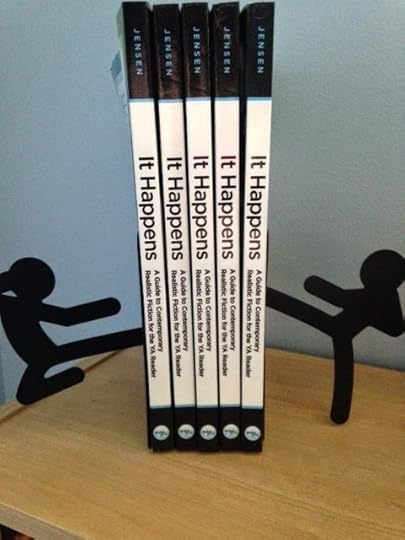
Now that these books with my name on them sitting between bookends on my book shelf, how about I give one away?
I've talked about It Happens enough that I think most readers know what it's about, but in case you don't, here's the description from my publisher.
One copy is up for grabs for a US or Canadian resident. I'll pick a winner at the end of the month.
Loading...







 Related StoriesIt Happens: A GiveawayIt Happens: It's HereGiveaway: THE FEVER by Megan Abbott
Related StoriesIt Happens: A GiveawayIt Happens: It's HereGiveaway: THE FEVER by Megan Abbott
Published on July 16, 2014 09:33
July 15, 2014
July Debut YA Novels
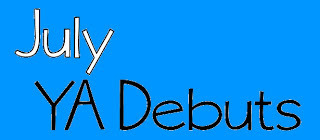
Ready for your monthly round-up of debut YA novels? If you've missed any of the prior editions from this year, you can find earlier debuts through the debut authors label here.
As usual, all of these are books by first-time authors. These are their very first published books, rather than their first foray into YA or their first YA novel within a particular YA genre or their first YA novle under a different name. Descriptions come from WorldCat unless otherwise noted.
July tends to be a quieter month in publishing, so there aren't a whole lot of debuts to talk about. But if I've missed any traditionally published debuts coming out this month, let me know in the comments.
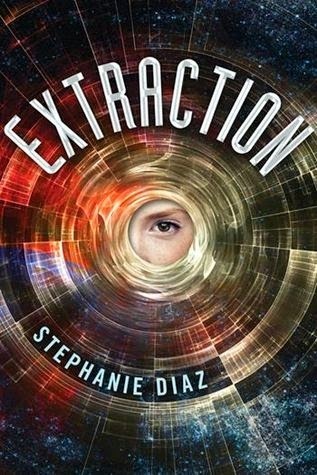
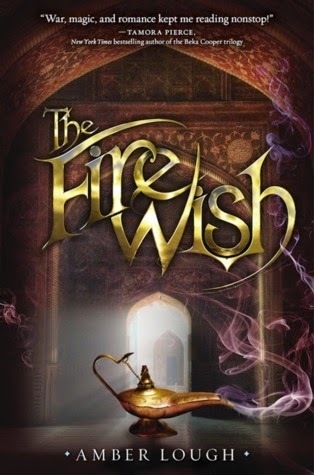
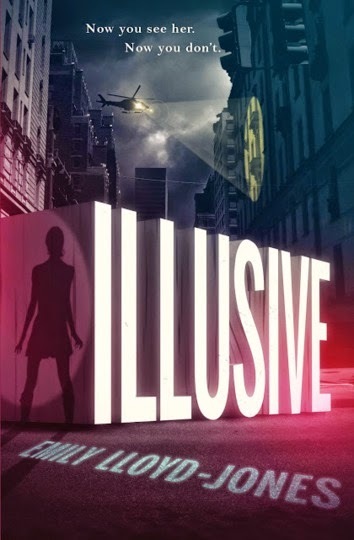
Extraction by Stephanie Diaz: When she proves Promising enough to be "extracted" from the planet Kiel's toxic Surface to the much safer Core, sixteen-year-old Clementine learns that the planet's leaders are planning to exterminate Surface dwellers, including Logan, the boy Clementine loves.
The Fire Wish by Amber Lough: When a princess captures a jinn and makes a wish, she is transported to the fiery world of the jinn, while the jinn must take her place in the royal court of Baghdad.
Illusive by Emily Lloyd-Jones: After a vaccine accidentally creates superpowers in a small percentage of the population, seventeen-year-old Ciere, an illusionist, teams up with a group of fellow high-class, super-powered thieves to steal the vaccine's formula while staying one step ahead of mobsters and deadly government agents.
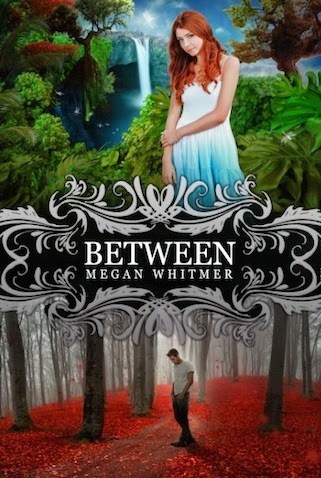
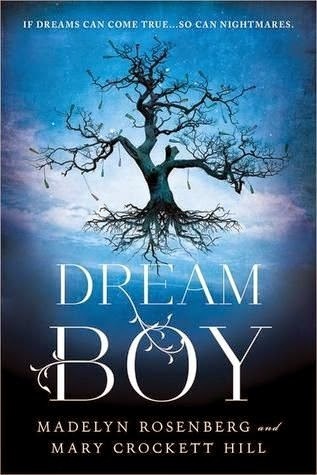
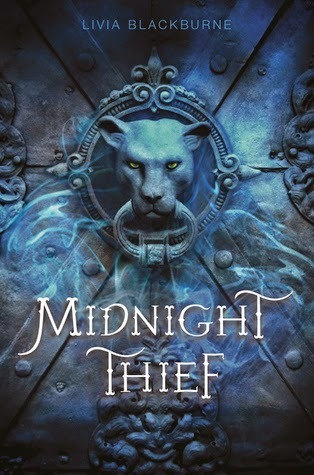
Between by Megan Whitmer: When a supernatural freak of nature forces her family to separate, seventeen-year-old Charlie Page must turn to her frustrating (yet gorgeous) neighbor, Seth, to help reunite them. Seth whisks Charlie to Ellauria--a magical world filled with the creatures of myths and legends--and tells her of the Fellowship, the group charged with protecting mystical beings from human discovery. (All except Bigfoot: that attention whore is a total lost cause.) But when Charlie learns that she's under the Fellowship's protection herself, well, stressed is an understatement. Ellauria should be the safest place for Charlie while the Fellowship works to find her family, but things in the mystical realm aren't what they seem. Magic is failing, creatures are dying, and the Fellowship insists Charlie holds the key to saving everyone. With her family still missing and the danger in Ellauria growing, Charlie doesn't know who she can trust. She's dealing with a power she never asked for, falling for a guy she can't have, and being forced to choose between her destiny and her heart. And if she chooses wrong, she could destroy magic forever. Charlie may be in over her head.
Dream Boy by Madelyn Rosenberg and Mary Crockett Hill: The day after Annabelle dreams of the perfect boy, he walks into her science class and whispers her name as he brushes past her, and suddenly she has a wonderful boyfriend and a prom date, just like a dream come true--until the dreams stop and the nightmares begin.
Midnight Thief by Livia Blackburne: Kyra, a highly skilled seventeen-year-old thief, joins a guild of assassins with questionable motives. Tristam, a young knight, fights against the vicious Demon Riders that are ravaging the city.

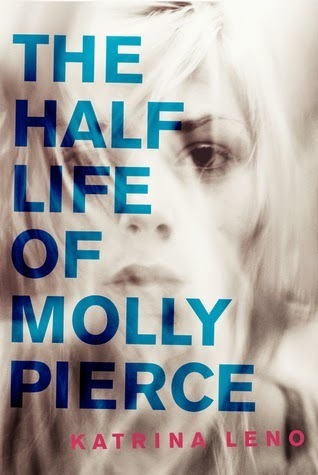
Copper Magic by Julia Mary Gibson: The year is 1906, and twelve-year-old Violet Blake unearths an ancient talisman--a copper hand--beside the stream where her mother used to harvest medicine. Violet's touch warms the copper hand and it begins to reveal glimpses of another time. Violet is certain that the copper hand is magic--and if anyone is in need of its powers, it's Violet. Her mother and adored baby brother are gone, perhaps never to return. Her heartbroken father can't seem to sustain the failing farm on the outskirts of Pigeon Harbor, on the shores of Lake Michigan. Surely the magic of the copper hand can make things right for Violet and restore her fractured family. Violet makes a wish. But her ignorant carelessness unleashes formidable powers--and her attempts to control them jeopardizes not only herself, but the entire town of Pigeon Harbor. In Copper Magic, land and waters are alive with memories, intentions, and impulses. Magic alters Violet and brings her gifts--but not always the kind she thinks she needs.
(This skews maybe more middle grade than YA, but I'm including it anyway since the main character is 12.)
The Half Life of Molly Pierce by Katrina Leno: Molly, a seventeen-year-old girl who suffers from dissociative identity disorder, has played host to Mabel, a completely distinct personality, for most her life. When Molly faces a crisis Mabel doesn't know she can handle, Mabel lets Molly in on her secrets.







 Related StoriesJune Debut YA Novels"Summer" Reads, 2014 EditionMaking a List & Checking it Twice: Bucket Lists and More in YA
Related StoriesJune Debut YA Novels"Summer" Reads, 2014 EditionMaking a List & Checking it Twice: Bucket Lists and More in YA
Published on July 15, 2014 22:00
July 14, 2014
Illusive by Emily Lloyd-Jones
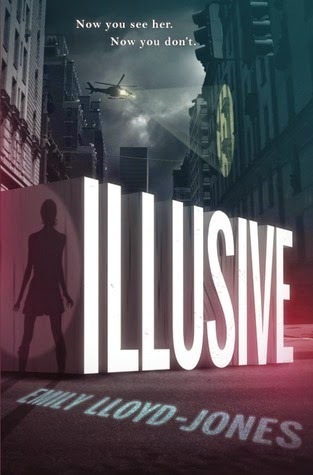 When I was a teen, I really liked reading about teenage criminals. There was something very heady about a teen who deliberately broke the law - sometimes for a selfless reason, sometimes not - and got away with it, over and over again. Putting something over on adults is a time-honored tradition for teens in literature, and I'm happy to report that Emily Lloyd-Jones' debut,
Illusive
, is a a terrific addition to this noble genre.
When I was a teen, I really liked reading about teenage criminals. There was something very heady about a teen who deliberately broke the law - sometimes for a selfless reason, sometimes not - and got away with it, over and over again. Putting something over on adults is a time-honored tradition for teens in literature, and I'm happy to report that Emily Lloyd-Jones' debut,
Illusive
, is a a terrific addition to this noble genre.There is perhaps no better "meet" marketing pitch than the one for this book: X-Men meets Ocean's Eleven. Unlike many others, this one actually works. It's about a group of teens with special powers who carry out heists. Their powers derive from a vaccine that cured a deadly illness. In a small percentage of the population, the vaccine caused peculiar side effects. Our protagonist, Ciere, found herself with the ability to create illusions - including the ability to make herself nearly invisible. Drawing a firmer parallel with the X-Men, the world Ciere finds herself in is one where people like her are hunted, recruited, and imprisoned. The only way to be free is to hide who you are - if that can be called freedom at all.
In the tradition of Divergent, Illusive is a bit of a vocabulary lesson. The vaccine created seven distinct categories of superhumans: illusive (create illusions), mentalist (read minds), eidos (perfect recall), eludere (sharper senses), levitas (levitation), dauthus (physical power), and dominus (mind-control by way of hypnosis). A dominus is rare, and when one appears on the page, it's intense. A few select portions from the POV of Daniel, who has been captured by the dominus and placed under his control, are chilling.
Like any good heist novel, the book is full of red herrings and surprise twists. The main thrust of the story involves Ciere and her crew (led by a Fagan-type named Kit Copperfield) running a job to steal a dead woman's will from a lawyer's office. What precisely the will contains and why their client wants it in the first place are teased out over the course of the novel. Naturally, the will is much more than it seems, and their client isn't the only one who wants it. Add to that the fact that a mobster is after Ciere for robbing a bank in his territory, and you've got an exciting, high-stakes ride.
The writing here is smooth, despite the fact that it's written in third person present tense. (I know I talk about how much I love third person, but paired with the present tense, it's so awkward. I still sort of wish the book were written in first person, or maybe past tense instead, but only sort of. It works.)
Particularly well-done is the experience of Ciere witnessing someone being killed. Often in stories like these, the tone is light and people are always cracking wise, even when they're killing people or being shot at. There's plenty of wisecracking here, but it was nice (if you can call a scene like this nice) to see that Ciere reacted viscerally, unpleasantly, realistically to a man being stabbed before her eyes. It adds a bit of seriousness to what is, after all, a serious situation. I also appreciated that there are a couple of f-bombs thrown in (not an overwhelming amount, but two or three). It makes sense that teen criminals would curse occasionally (or even, dare I say, frequently...).
I'm of the opinion that there just aren't enough YA heist novels out there, so I'm glad to see another join the ranks. This should satisfy fans of series like Heist Society (though it's a bit more intense) who don't mind the added sci-fi element. I can imagine that for many readers, the sci-fi element would only sweeten the pot. It may also appeal to fans of Mind Games by Kiersten White or Sekret by Lindsay Smith, also books about teenage criminals with superpowers (I feel a book list forming).
Review copy received from the author. Illusive is available today.







 Related StoriesConversion by Katherine HoweDirty Wings by Sarah McCarryHigh and Dry by Sarah Skilton
Related StoriesConversion by Katherine HoweDirty Wings by Sarah McCarryHigh and Dry by Sarah Skilton
Published on July 14, 2014 22:00



